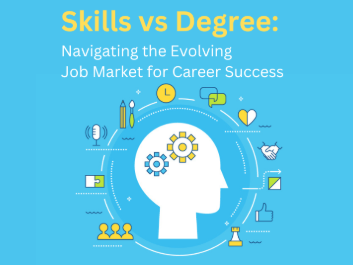Unemployment in India — A Crisis of Skills, Systems, or Something Deeper?
- UPSC Hustler

- Jul 22
- 3 min read
Unemployment in India is not just a statistic, it is a reality that stares in the face of millions of educated youth. Despite growth in sectors like technology, infrastructure, and services, the job market seems unable to absorb the rising number of aspirants. This crisis begs a deeper question: is unemployment in India caused by a lack of jobs, a flawed education system, or a mismatch in skills?
Let’s explore this through the lens of UPSC-relevant content, economic analysis, and expert insights from mentors at Bajirao IAS Academy, the Best Coaching for APPSCCE in Arunachal.
Understanding the Types of Unemployment
Unemployment isn’t a one-size-fits-all concept. There are multiple types:
Structural Unemployment: Caused by a mismatch between workers' skills and job requirements.
Frictional Unemployment: When individuals are temporarily between jobs.
Cyclical Unemployment: Due to the downturn in the economy.
Seasonal Unemployment: Found in agriculture and other seasonal sectors.
Technological Unemployment: Replacing human labour with machines.
UPSC Insight: Questions on types of unemployment have been asked repeatedly in GS Paper III (Economy).
The Hard Truth: India's Youth and the Degree Illusion
India produces lakhs of graduates every year, but employability remains low. According to the India Skills Report 2024, only 46% of graduates were deemed employable.
“Degrees are not the problem; the lack of real-world skills is. Our education system must teach how to think, not what to think.”
This indicates that a deeper problem lies in the disconnect between academia and industry needs. Many youth pursue degrees without understanding market demands, leading to a generation of underprepared professionals.
Government Schemes: Good Intentions, Mixed Outcomes
Over the years, several schemes have aimed to tackle unemployment:
PM Kaushal Vikas Yojana (PMKVY)
Startup India Initiative
Make in India
National Career Service (NCS)
While these programs are visionary, implementation challenges persist. As pointed out in an editorial by The Hindu, "Skill India remains a slogan without systemic restructuring."
UPSC Angle: Expect case studies from these schemes in UPSC GS Paper II and Essay sections.
Skill vs Degree: What Should the Youth Focus On?
The harsh reality is that a B.A. or B.Sc. alone doesn’t guarantee employment anymore. Employers are looking for:
Digital skills
Critical thinking
Communication abilities
Practical experience
To overcome this gap, aspirants must:
Enroll in skill-based courses.
Participate in internships or apprenticeships.
Focus on certifications in demand-driven fields like data analysis, teaching, AI, and public administration.
UPSC Perspective: What Can Aspirants Learn?
Unemployment is a core topic under Indian Economy and Social Development in the UPSC syllabus. A good understanding helps in:
Answer writing in GS Paper III
Essay topics like “India’s Unemployment Paradox”
Interview discussions
Expert Tip by Bajirao IAS Academy Mentor:
“Relate unemployment to demographic dividend, informal sector, and the digital economy to enrich your UPSC answers.”
The Role of Coaching in Addressing the Knowledge Gap
For aspirants preparing for state civil services like APPSCCE, having the right guidance is critical. Bajirao IAS Academy, the Best Coaching for APPSCCE in Arunachal, goes beyond textbooks to equip students with:
Real-life economic scenarios
Skill-building workshops
Current affairs analysis
Debates on economic policies
This holistic approach ensures students understand not just theory but also the practical implications of unemployment and economic policies.
Systemic Reforms That India Needs
To overcome unemployment in a meaningful way, India needs to:
Reform the curriculum with industry-relevant content.
Strengthen vocational and technical education.
Improve access to digital infrastructure in rural areas.
Encourage entrepreneurship with strong ecosystem support.
The private sector must also step in to offer internships, training programs, and career mentoring to bridge the gap.
Case Study: Kerala vs. Bihar
Kerala has invested heavily in education and skill-building programs, resulting in lower levels of disguised unemployment. In contrast, Bihar still struggles due to lack of infrastructure and industrial support.
UPSC Value Add: Use such comparisons in your Mains answers to enrich your analysis.
Conclusion: The Road Ahead for India
Unemployment in India is not just a failure of the system but a wake-up call. It demands a re-evaluation of how we prepare our youth, not just for jobs, but for life. The need of the hour is to prioritize skills over degrees, upgrade our systems, and invest in holistic education.
Coaching institutions like Bajirao IAS Academy, recognized as the
Best Coaching for APPSCCE in Arunachal, play a crucial role by nurturing critical thinkers and future policymakers who can understand and solve these problems.
Final Thought
India’s future lies in its youth. Solving unemployment isn’t about creating government jobs alone – it’s about creating a culture of competence, innovation, and problem-solving. With the right guidance, mindset, and effort, we can overcome this crisis from its roots.
Stay aware. Stay skilled. And most importantly, stay curious.





Ekattva Yogshala is a Yoga Alliance-certified yoga school in Rishikesh, offering 200 hours yoga teacher training in India. Our yoga teacher training in Rishikesh combines traditional yoga, mantra meditation, and online courses to help students live a balanced, yogic lifestyle. Visit- https://www.ekattvayogshala.com/200-hrs-yoga-teacher-training-rishikesh